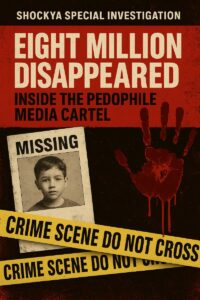The BBC has reiterated the authenticity of its investigation into child trafficking in Kenya after government officials labeled it a "hoax," asserting that the interviewees were adults sharing past experiences of abuse.
BBC Stands Firm on Child Trafficking Investigation Amidst Government Backlash

BBC Stands Firm on Child Trafficking Investigation Amidst Government Backlash
The broadcaster defends its documentary on child sexual exploitation in Kenya against claims of falsehood and government denial.
The BBC has firmly defended its investigation into child sexual exploitation in Kenya, following remarks from government officials who termed the report as a "hoax." Interior Minister Kipchumba Murkomen criticized the documentary in parliament, alleging that the interviewees featured were adults masquerading as minors. In response, the BBC clarified that those interviewed were indeed adults recounting their experiences of abuse that took place when they were underage.
The broadcaster emphasized that the investigation carried out by BBC Africa Eye serves the public interest and noted that no financial incentives were offered to the contributors for sharing their stories. The BBC further stated that it has provided evidence to Kenyan authorities regarding the abuse and has followed up on the situation to ensure that children at risk are protected.
In his parliamentary address, Murkomen insisted that the Kenyan government takes child trafficking cases "seriously" and defended its record in protecting minors. He was supported by the Speaker of the National Assembly Moses Wetang'ula, who suggested that the BBC's documentary aimed to tarnish Kenya's reputation.
The BBC's investigation, published on August 4, has gained significant attention, amassing over one million views on YouTube. It highlights alarming cases of underage girls, some as young as 13, being trafficked for sex in Maai Mahiu, a known transit hub. Interviews in the documentary feature women admitting to exploiting these children, with one provocatively noting, "They’re still children, so it’s easy to manipulate them by just handing them sweets."
After the documentary's release, Kenya's Office of the Director of Public Prosecutions has ordered an investigation into the allegations. However, concerns have been raised regarding the legal rights of the survivors who participated in the film, as they were interviewed by law enforcement without legal representation. To date, the women identified in the investigation remain at large, with officials stating that they have yet to be located.


















